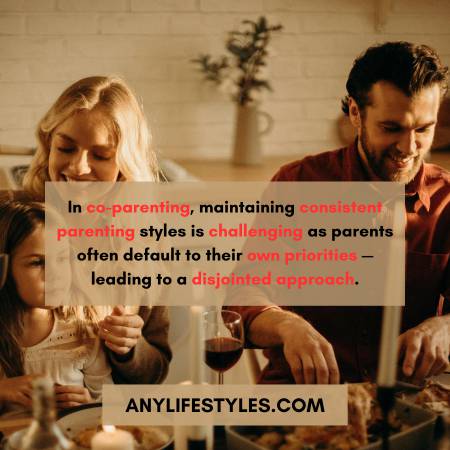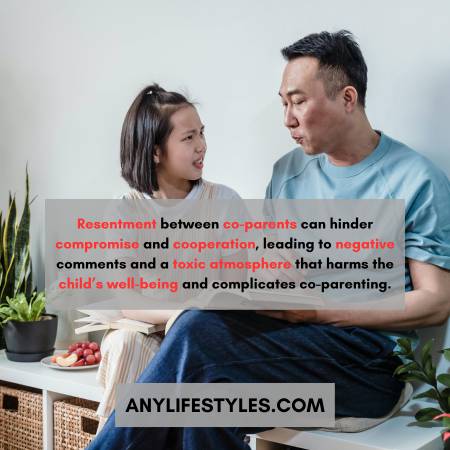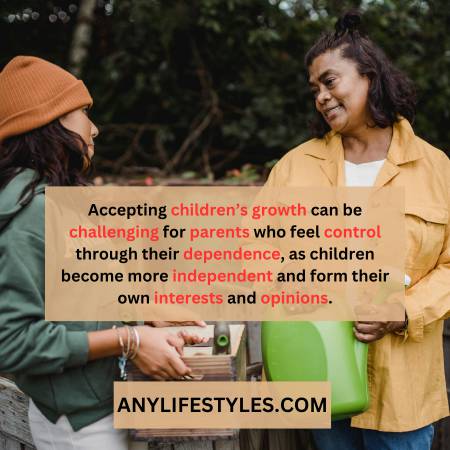The Challenges of Co-Parenting can be overwhelming, especially when dealing with an uncooperative ex-spouse. Small disagreements can quickly turn into major problems, making it difficult to navigate the complex web of shared child responsibilities.
When both parents are tasked with raising a child after a separation or divorce, it presents unique difficulties for both parents and children. However, with effort and compromise, co-parenting can create a stable and caring environment that benefits everyone.
This article will delve into the challenges of co-parenting and provide practical solutions to help make the journey easier for you and your child.
Challenges of Co-Parenting – 8 Common Challenges
It’s not easy to set aside past disagreements and feelings of hurt or anger. Building a new relationship centered on communication can be challenging, especially when cooperating after a separation.

Many common co-parenting challenges can be resolved with small adjustments to your approach or by learning how to handle boundary-pushing. Before we dive into solutions, let’s explore what you might be experiencing and why these challenges occur.
1. Communication Chaos:
One common challenge in co-parenting is communication breakdown. After a split or divorce, emotional strain can hinder effective dialogue. Factors like lingering anger or resentment, as well as differing communication styles, often contribute to misunderstandings and misalignment.
2. Inconsistent Parenting Styles:
In co-parenting, maintaining consistency in parenting styles becomes a challenge because parents live separately. It’s easy for each parent to default to their natural tendencies, creating a disjointed approach. One parent might prioritize academics, while the other emphasizes extracurriculars.

One may be lenient with discipline, while the other is stricter. These variations can lead to confusion and conflict for children, who may feel torn between different expectations. This inconsistency can be stressful and confusing for them, as they struggle to navigate two distinct parenting styles.
3. The Emotional Toll of Resentment:
Divorce is often a difficult and emotional experience, leaving many parents with feelings of hurt and resentment. These emotions can last long after the legal process is over, causing challenges in co-parenting.
When one parent feels resentment towards the other, it can make it hard for them to work together or compromise, which is important for healthy co-parenting. They may find it difficult to avoid making negative comments about their ex, creating a toxic atmosphere.

4. Financial Challenges in Co-Parenting:
Co-parenting often involves navigating complex financial issues that can strain relationships and impact the well-being of children. Some common challenges include unequal financial support, outdated child support agreements, disparities in lifestyle choices, and communication difficulties.
These financial challenges can have a significant impact on the child’s mental health and overall development. Effective communication, compromise, and a focus on the child’s best interests are essential for navigating these difficulties successfully.
5. Dealing with a Difficult Ex:
When a parent feels like an underdog, they may attempt to sabotage the co-parenting relationship by making the other parent seem like the bad parent. This can be particularly harmful when children are involved, as they may be caught in the middle of the conflict.
The best approach in such situations is to remain calm and focused on the comfort of the children. Avoid engaging in the parent’s negative behavior and prioritize building a strong connection with your children. Ultimately, children will be able to see through the manipulation and recognize who truly has their best interests at heart.
6. Understanding the Need for Independence:
Accepting and adapting to children’s growth and development can be particularly difficult for parents who derive a sense of control or power from their children’s dependence. As children get older, they become more independent and develop their interests and opinions.

This can be perceived as a loss of control by some parents, leading to resentment or attempts to undermine the child’s autonomy. When faced with this challenge, it’s important to support your children and encourage them to express their thoughts and feelings.
Additionally, try to help your co-parent understand the importance of fostering their children’s growth and independence.
7. Managing Shared Resources in Co-Parenting:
One of the common challenges in co-parenting relationships is managing shared resources, such as children’s belongings. When one parent is less concerned about these items, it can lead to confusion, conflict, and additional responsibilities for the other parent.
To address this challenge, it’s important to involve the children in taking care of their belongings. By teaching them responsibility from a young age, you can help them develop valuable life skills and reduce the burden on both parents.
If your children are too young to manage their belongings independently, consider communicating with your co-parent about returning borrowed items. A simple reminder or a shared list can help prevent misunderstandings and minimize conflict.
8. Introducing New Parent:
Introducing a new partner or stepparent into a child’s life can be a complex and challenging process. Children may initially feel confused, hostile, or resentful towards new adults in their lives. It’s important to remember that building trust and comfort takes time.
When you are ready to introduce a new partner, it’s crucial to work collaboratively with your co-parent to minimize stress for your children. Involving your co-parent demonstrates respect for their position and can help create a smoother transition.

Conclusion:
Divorce can be emotionally tough on everyone involved, especially children. When parents allow their enmity to interfere with their parental responsibilities, it can create stress and frustration for their children.
To ensure a successful co-parenting relationship, it’s crucial to prioritize the needs of your children and work towards a positive and collaborative dynamic. Developing a realistic and comprehensive parenting plan is a critical step in establishing a successful co-parenting arrangement.
Co-parenting can be a challenging but rewarding experience. By understanding and addressing the common challenges, parents can create a positive and supportive environment for their children. Remember, the well-being of your children should always be the top priority.





